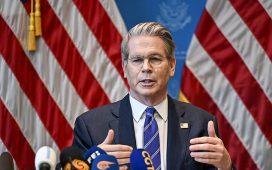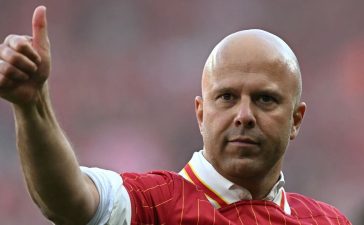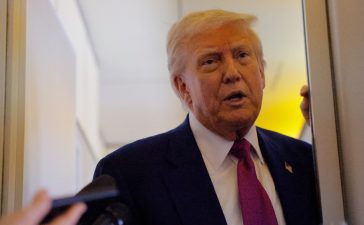Unlock the Editor’s Digest for free
Roula Khalaf, Editor of the FT, selects her favourite stories in this weekly newsletter.
Donations to Harvard University fell 14 per cent in the fiscal year ending June 30, as large donors cut ties and prominent alumni in the financial industry criticised its administration over a botched response to protests around the Israel-Palestinian conflict.
Overall gifts to the western world’s wealthiest university dropped to $896mn from $1.05bn a year ago, as outrage over campus protests led to the resignation of president Claudine Gay.
The drop came exclusively in donations to the university’s endowment, where the very largest gifts tend to be concentrated. Those gifts fell by one-third, while donations to the operating fund, which covers day-to-day expenses, rose 9 per cent year on year to $528mn.
Harvard representatives did not immediately respond to a request for comment. But the university referred to president Alan Garber’s statement on Thursday to the in-house news service that “alumni and others demonstrated both their concern and their care for the future of the institution through growing levels of support over the course of the year”.
Student protests over the response by Israel to Hamas’s attack on October 7 2023 roiled the Cambridge, Massachusetts, campus for much of the past school year, and wealthy alumni criticised the school for its handling of the demonstrations. Hedge fund manager Bill Ackman led a vocal campaign for Gay’s ousting and Citadel founder Ken Griffin, a big donor, urged the university to embrace “western values”.
Though donations fell, the school’s endowment generated gains, returning 9.6 per cent. That pushed total holdings back up to $53.2bn, about level with June 2021, before Russia’s full-scale invasion of Ukraine sent the endowment tumbling along with public equity and bond markets.
The 2024 results trailed the median returns of 10.1 per cent for US colleges and universities, as calculated by Cambridge Associates, but they beat Harvard’s target annual return of 8 per cent, a level that is well below the results posted over the past 10 years by almost all of the university’s Ivy League peers.
The university is taking a conservative investment approach because its endowment funds nearly 40 per cent of Harvard’s budget, up from 31 per cent 10 years ago.
“The endowment’s orientation towards strong investment returns has been tempered by the imperative for budgetary stability,” Narv Narvekar, chief executive of Harvard Management Company, which manages the endowment, wrote in a message announcing the results.
Private equity, the biggest component of HMC’s investment portfolio, lagged behind public equity for the second year in a row as a slump in stock listings as well as mergers and acquisitions put the asset class under stress.
Narvekar said in the letter that HMC’s private equity portfolio underperformed in part because portfolio managers who had not marked down their holdings sharply during the 2022 market crash then also refrained from valuing their investments upward “in the context of rising public equity markets” in 2023 and 2024.
HMC’s private equity allocation has more than doubled to 39 per cent of its assets since Narvekar took the helm in 2016.
Roger Vincent, founder of Summation Capital and a former senior investment officer at Cornell University’s endowment, said he was “reasonably impressed” with Harvard endowment’s one-year return as it stood above some of its Ivy League peers with “similar portfolio constructions”.
“With a very heavy allocation to alternatives and illiquid (assets), it has produced what looks like a very good return, but it doesn’t matter unless they look OK on a longer time horizon.”











